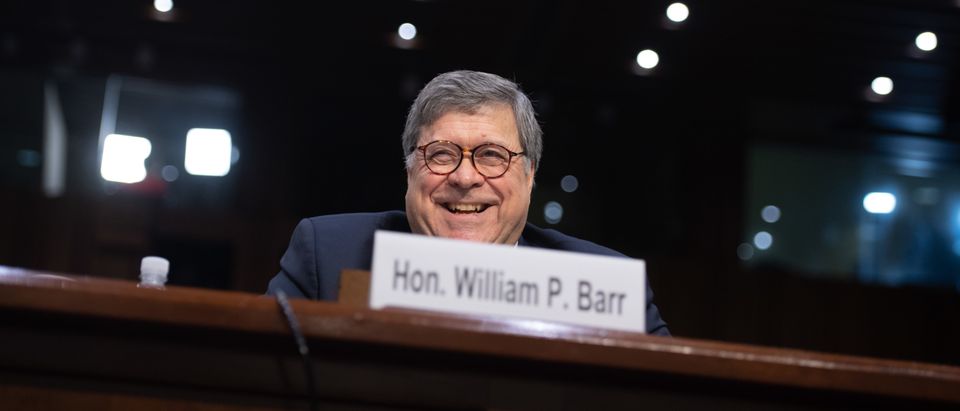It may be heresy outside of President Trump’s circle to criticize Special Counsel Robert Mueller, but criticism is justified. Since the administration of Ulysses S. Grant in the 1870s, special prosecutors or special counsels have conducted investigations involving presidents that are independent of the president or his political appointees. This independence sometimes led to clashes with presidents as in Saturday Night Massacre when President Richard Nixon fired Special Prosecutor Archibald Cox. Yet, without independent investigations, Congress and the public can have no confidence in their results.
Unfortunately, Attorney General William Barr’s summary of Mueller’s findings raised more questions than it answered. Here are five main takeaways.
Special Counsel Mueller Compromised His Obstruction Investigation
According to Barr summary of Mueller’s findings on obstruction: “The special counsel states that ‘while this report does not conclude that the President committed a crime, it also does not exonerate him.'”
But rather than making a recommendation on obstruction, Mueller shattered nearly 150 years of precedent and voluntarily compromised the independence of his investigation by punting to Attorney General William Barr. The attorney general is not only a political appointee, but he was also on record before his appointment in saying that essentially a president cannot be charged with obstruction of justice.
Obstruction of justice by itself is a serious crime and a basis for impeachment. In 1974, the House Judiciary Committee, including a third of Republicans, voted an article of impeachment against President Nixon for obstructing investigations of the Watergate break-in even though he was not charged with involvement in the crime. In 1998, the full House voted an article of impeachment against President Bill Clinton for obstructing the investigation of his private consensual affair with Monica Lewinsky. Nearly every House Republican voted for this article and most Senate Republicans voted to convict Clinton for obstruction.
If the charge of obstruction turns on a president’s state of mind, why did Mueller fail to submit written questions on obstruction to the president and decline to press for an in-person interview?
We Need to See the Full Mueller Report
As a historian I deal with primary source documents — in this case the full Mueller report. I know from experience that a summary of a primary document is often incomplete and misleading especially when prepared by an interested party like Barr, who has in the past denigrated the Mueller investigation.
Congress and the public must have an opportunity to view the full Mueller report and draw their own conclusions. The American people agree. A Morning Consult poll taken in late February found that 68 percent of registered voters said that the report should be made public. Only 10 percent said that it should not, with 22 percent undecided. Without access to the full report we’ll get only spin from Republicans and Democrats, further undermining the people’s fragile confidence in the institutions of their government.
Don’t Think of the Investigation as Wins and Losses
We should not think about the Mueller investigation like a sports contest with wins and losses for the president. We should think about what is good for the nation. It is good for the nation if an American president did not conspire with a hostile foreign power to rig an election. It is also good for the nation if the president did not obstruct the course of justice. However, obstruction remains an unsettled question that requires examination of the full report and further inquiry by Congress.
The Barr Summary Passes Over a Critical Finding of the Mueller Investigation
We know from Mueller’s indictments, that a critical finding of his investigation, looking forward, not backward, is that the Russian interfered massively in America’s 2016 presidential election. Yet the Barr summary barely mentions this interference in but a single line saying, “The report outlines the Russian effort to influence the election and documents crimes committed by persons associated with the Russian government in connection with these efforts.” Regardless, it now behooves President Trump to explain precisely what steps the American government will now take to protect the 2020 election from similar interference by the Russians or any other hostile foreign power.
There are Unanswered Questions on the Russia Connection
The Barr summary quotes the Mueller report as absolving the president and his associates of conspiring with the Russian government. But Barr leaves many questions unanswered. For example, we need to know how Mueller accounted for the Trump Tower meeting between Donald Trump, Jr., Paul Manafort, and Jared Kushner with Kremlin-connected Russians. The Russians had openly promised dirt on Hillary Clinton as “part of Russia and its government’s support for Mr. Trump.” Why did the Special Counsel failed to interview Don Jr. and Kushner about this meeting and other Russian connections?
We need to know how the special counsel explained away Campaign Chair Paul Manafort’s offer to provide Russian oligarch Oleg Derispaska privileged access to the Trump campaign. We need to know how Mueller dealt with Manafort’s meeting with Konstantin Kilimnik, a Ukrainian with ties to Russian intelligence, to whom he provided internal Trump campaign polling information. We need to know why there were some 100 contacts between the Trump campaign and Russians and why none of the contacts were reported to the FBI, even after the bureau warned the campaign about overtures from Russians.
Were all these contacts all merely coincidence? We still don’t know.
Allan J. Lichtman (@AllanLichtman) is distinguished professor of history at American University in Washington, D.C. and author of “The Case For Impeachment.”
The views and opinions expressed in this commentary are those of the author and do not reflect the official position of The Daily Caller.


